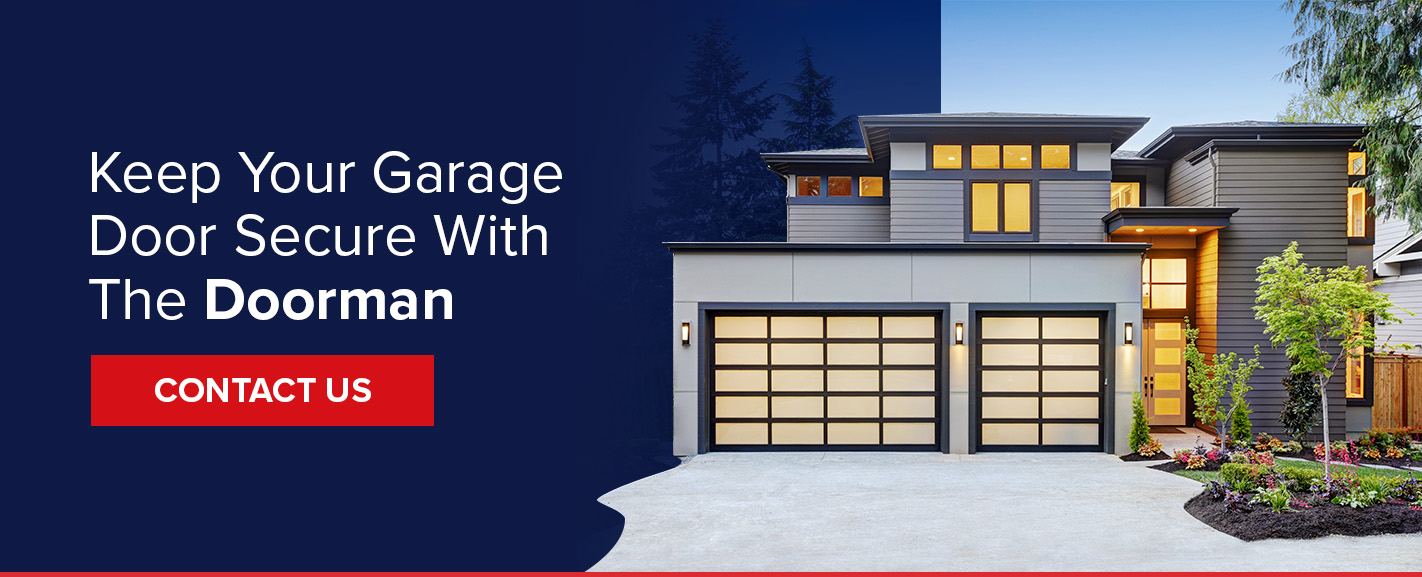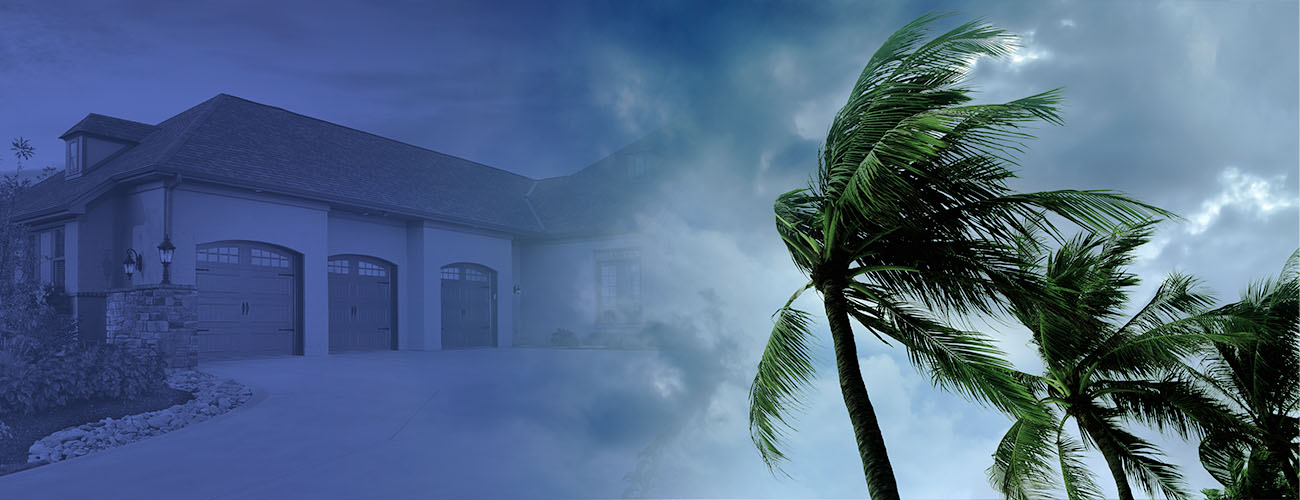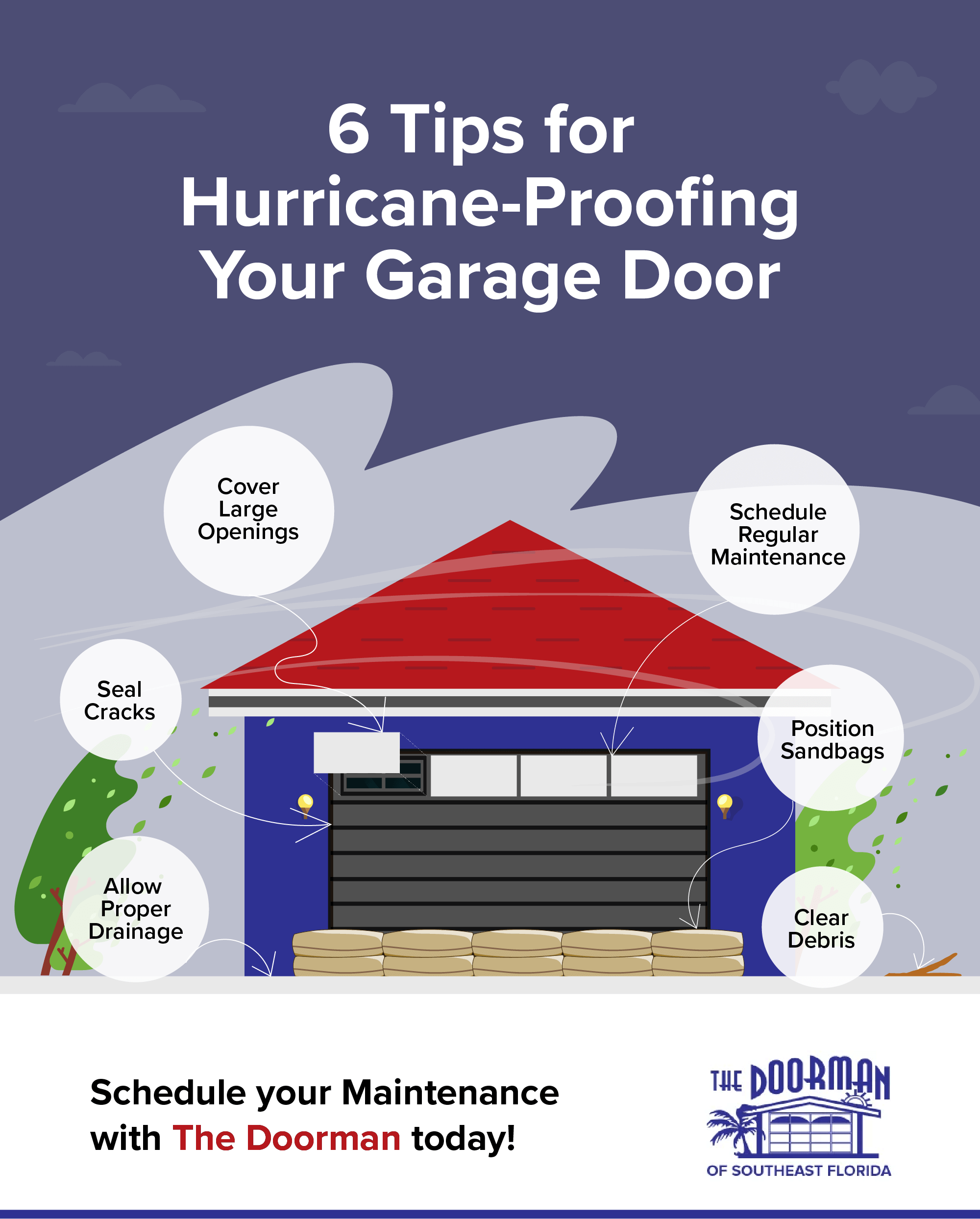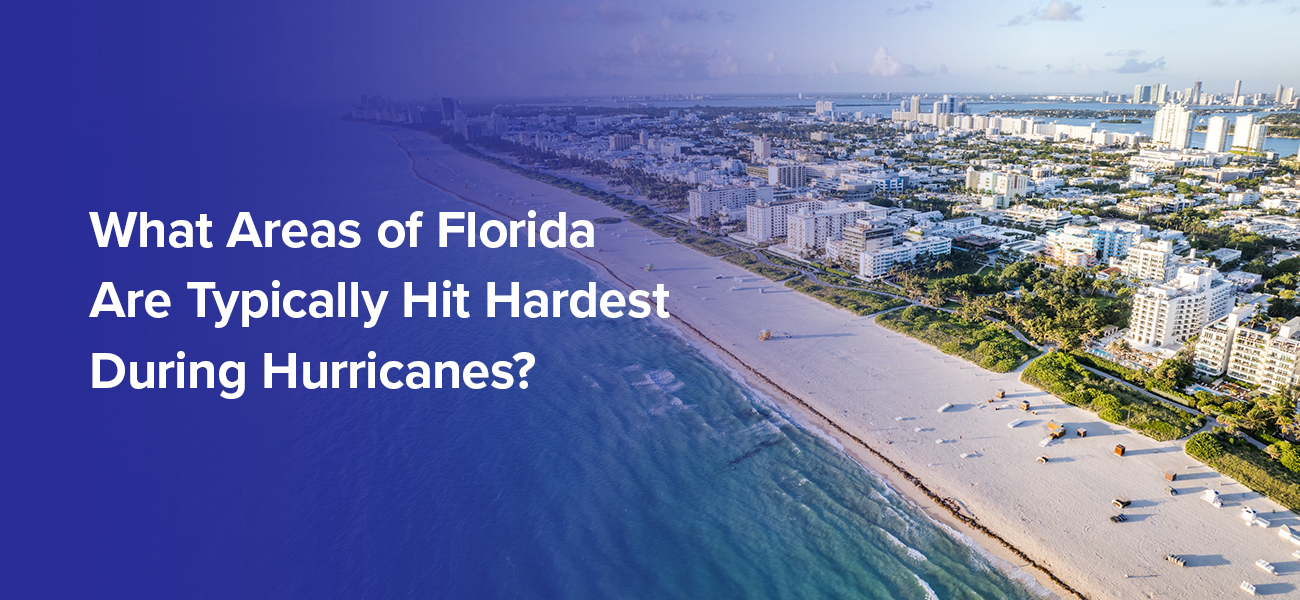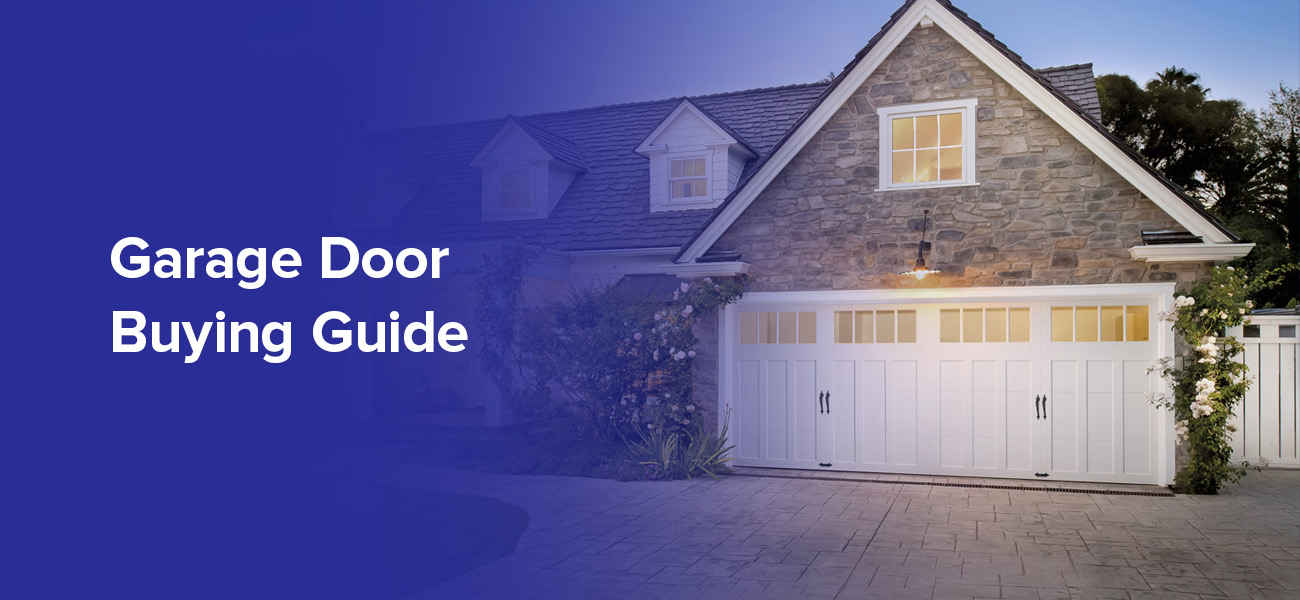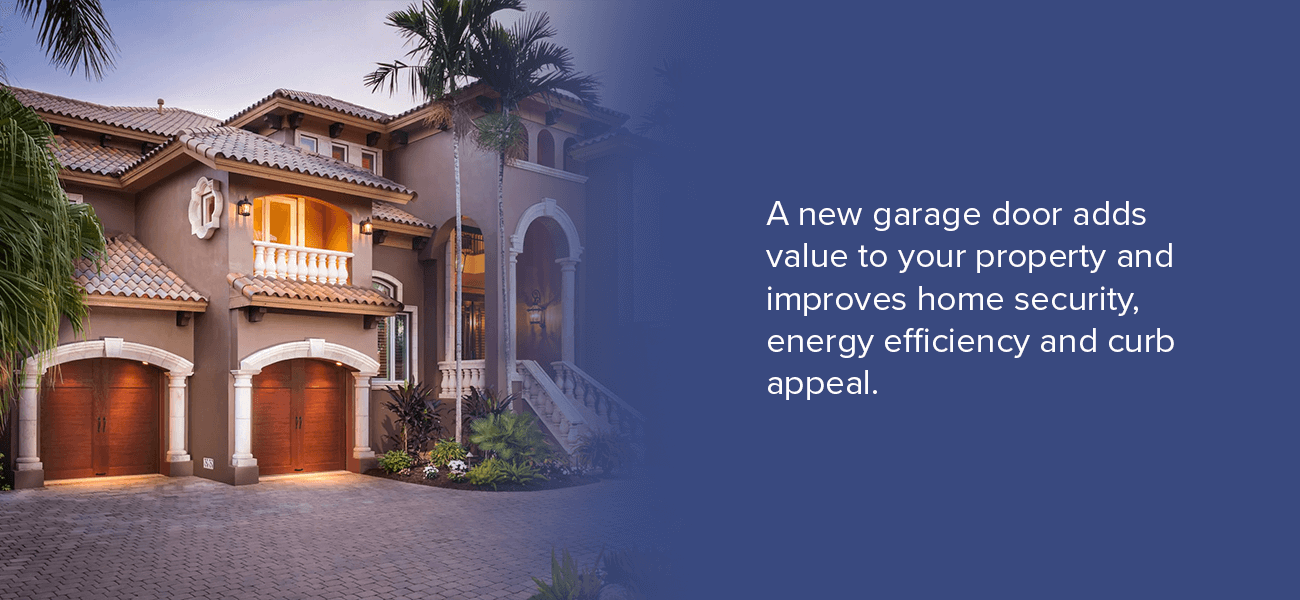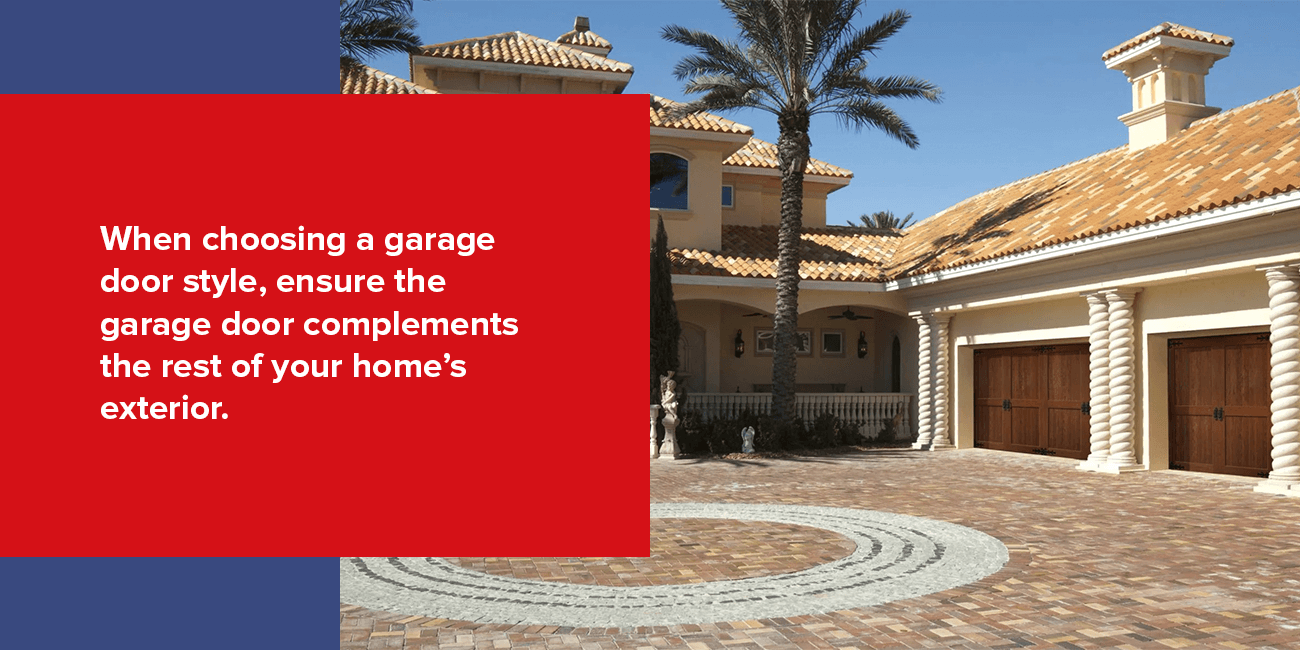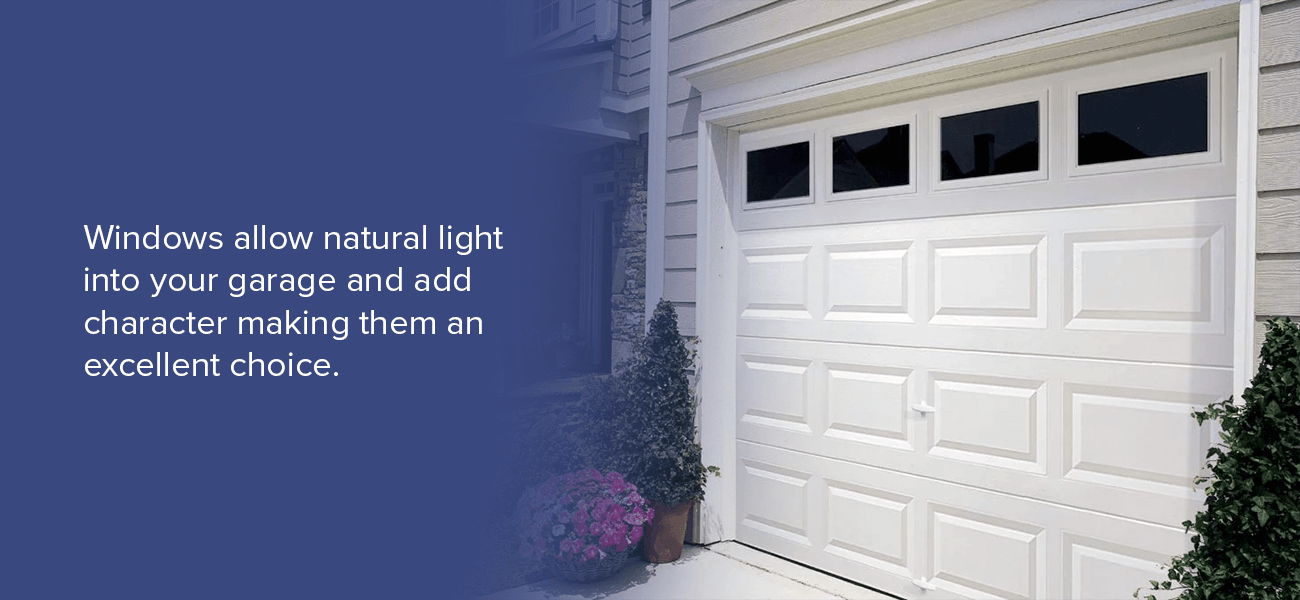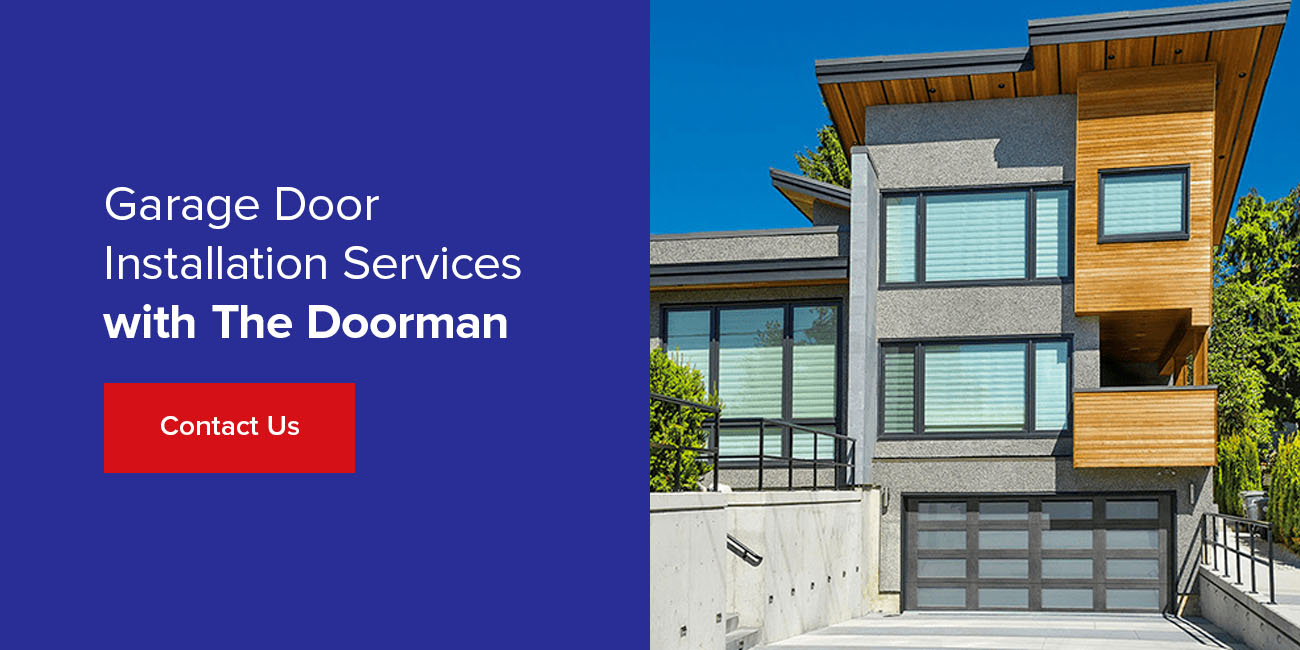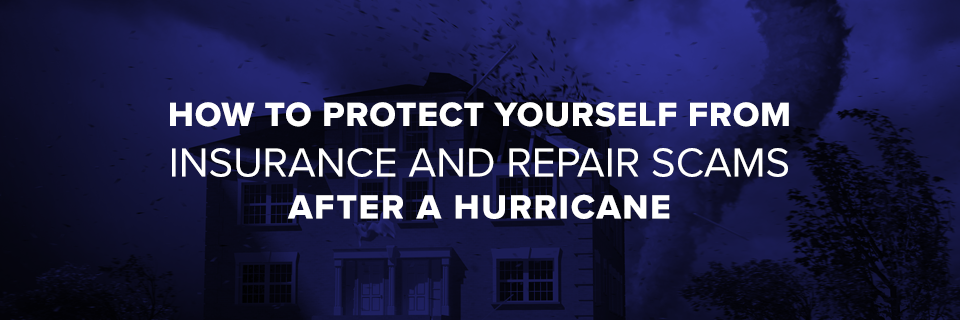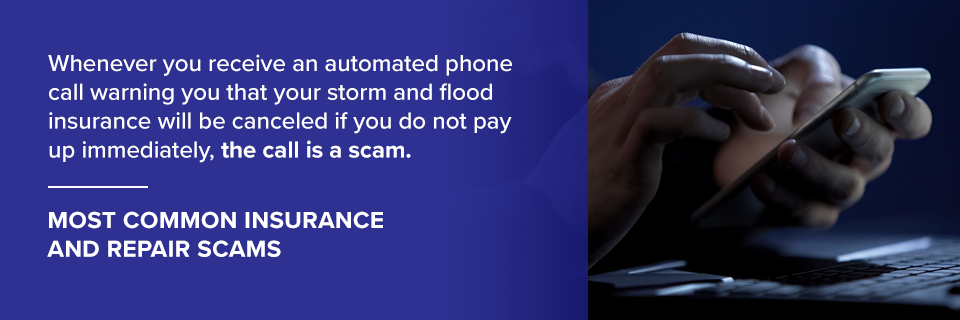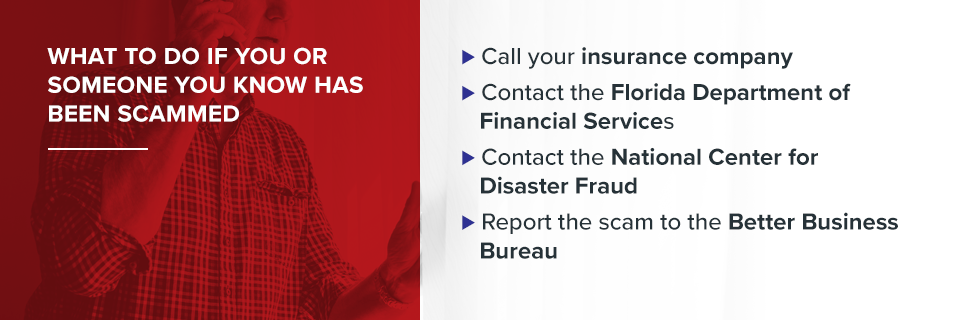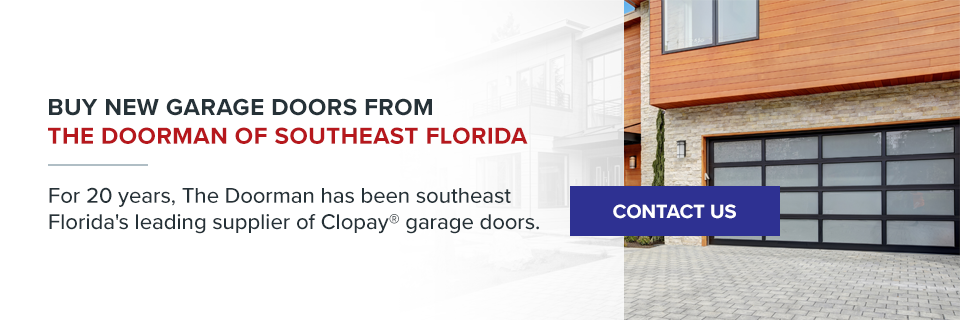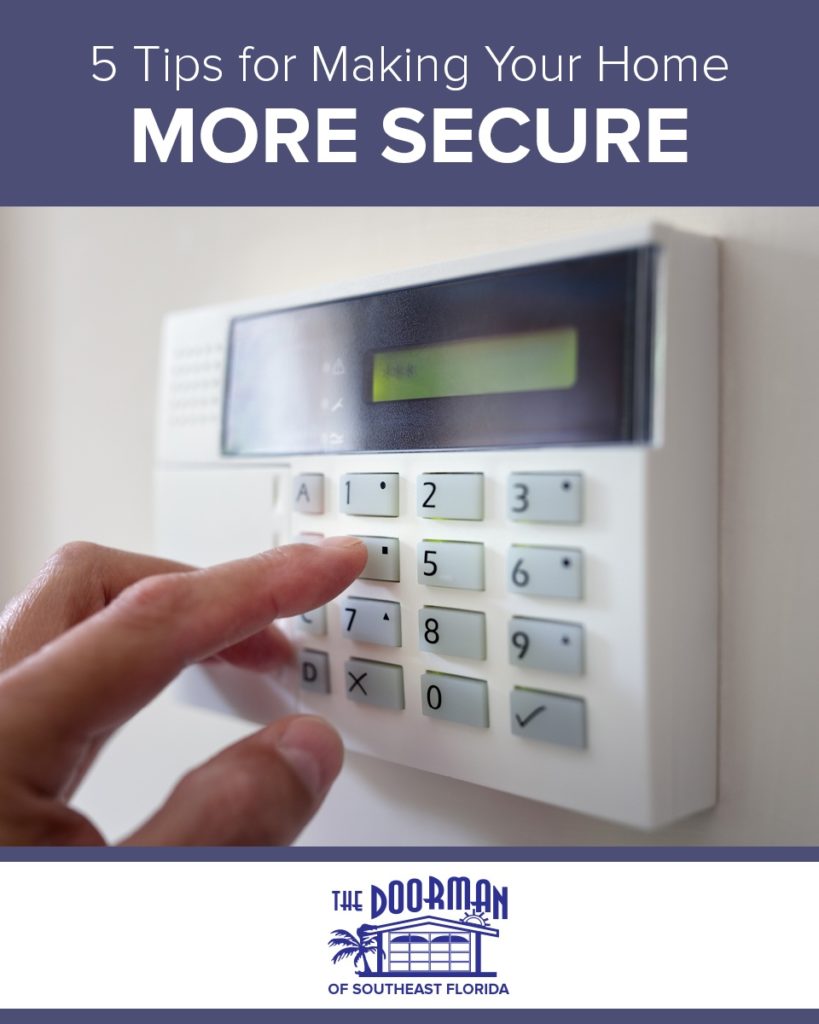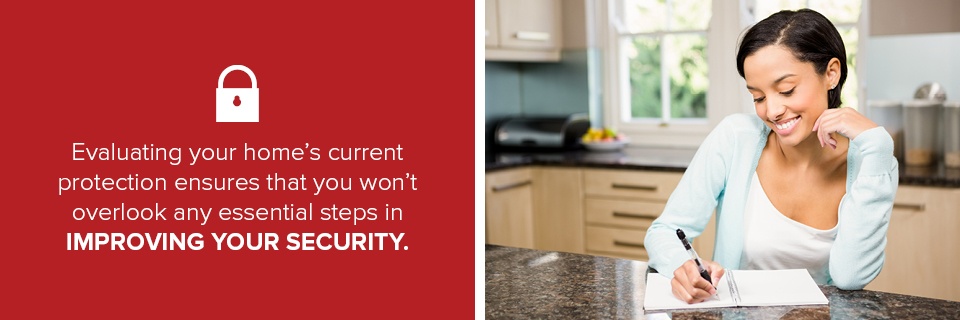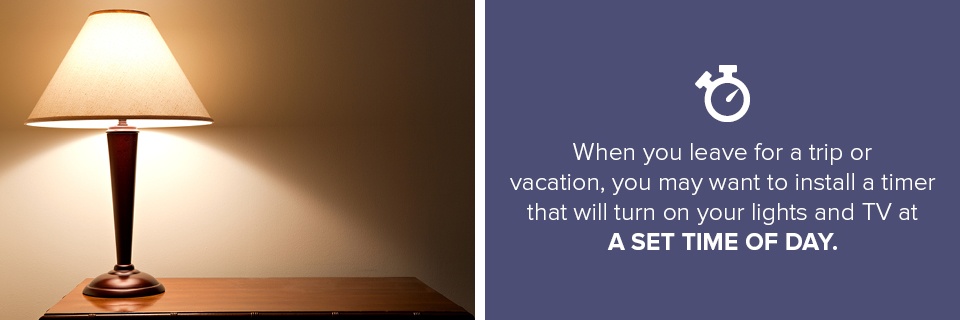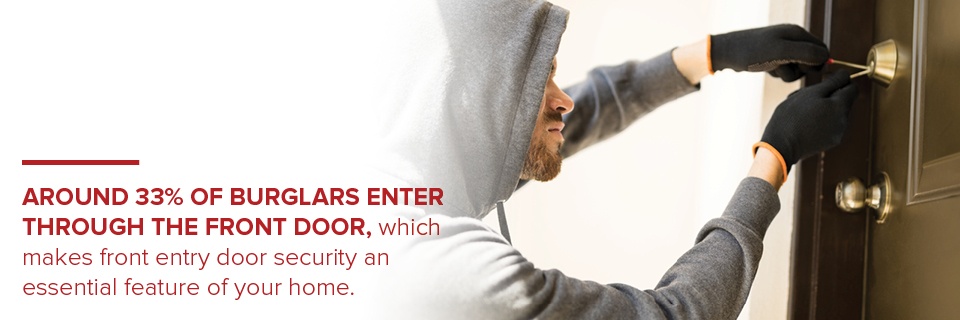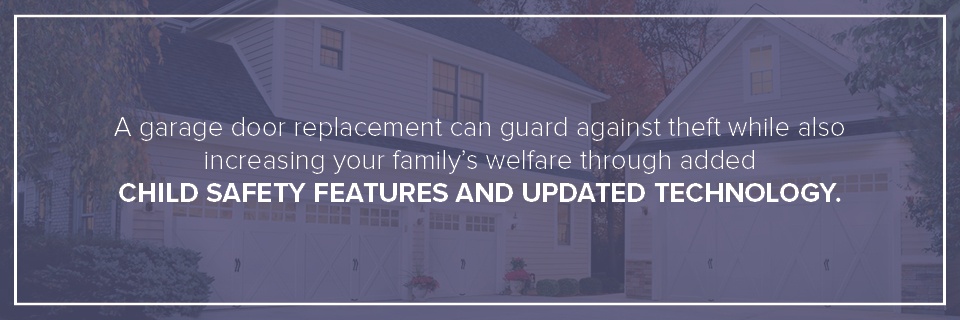Securing Your Garage: Essential Tips for Preventing Break-Ins
While your garage offers a convenient way for you and your family to store vehicles and gain access to your home, it also serves as a potential entry point for burglars. This concern is why it is crucial to implement garage door security measures to reduce the risk of home invasions.
7 Garage Door Security Tips
If you are unsure about how to make a garage door more secure, consider these steps to help protect you, your family and your belongings from garage break-ins:
- Ensure proper garage door maintenance: Regular garage door maintenance allows you to maintain your door and be aware of damage. Professionals can identify potential concerns early on and repair any issues with your tracks, cables, springs or rollers that could impact how well your door works.
- Install a secure garage door: The more sturdy and tamper-resistant your garage door is, the better. Choosing a garage door that is impact-resistant and doesn’t have any windows will make it more challenging for burglars to gain access.
- Use high-quality locks and latches: Ensure your access doors are secured with high-quality locks and latches. Heavy-duty hardware or even smart locks can provide an extra layer of security.
- Secure the emergency release handle: If your garage door has an emergency release handle, be sure to secure it. You can use either zip ties or shields to make it harder for burglars to enter.
- Protect the garage door opener: Keep your garage door opener out of sight. Do not store it on the visors of vehicles parked in your driveway or in any other easily visible or accessible location outside. If you have a wall-mounted keypad, change the code regularly.
- Add lighting and security cameras: Adding motion sensor lights and visible security cameras can deter burglars. Knowing they can be easily seen or identified will make a potential intruder less likely to target your home.
- Use home automation and monitoring: Consider using smart garage door openers for easy remote monitoring. Some of these systems can even close your door for you after a set period of time if you forget to. Integrating your garage door with your home security system makes it easy to monitor what is going on at home when you’re away.
Keep Your Garage Door Secure With The Doorman
At The Doorman, we specialize in the services you need to keep your garage door — and home — safe, secure and operating as it should. Whether you need a new installation, repair or maintenance services, we provide reliable, fast and friendly service.
Reach out today to receive a free estimate on our garage door services.
How to “Hurricane-Proof” Your Garage Door
Your garage door plays a significant role in protecting your home from costly damages. Learn how to make your garage hurricane-proof when the season rolls around.
Tips for Hurricane-Proofing Your Garage Door
Although investing in an impact-resistant garage door provides the most protection, you can implement a few strategies to make your property safer during a tropical storm or hurricane when you have a conventional door.
1. Cover Large Openings
The first step you should follow involves closing your garage door. Use plywood to board up any windows in your garage and ensure your door’s tracks and mounting area are in ideal condition so they can stay secure and closed.
2. Seal Cracks
A tiny crack in or between your wall and garage door can allow water to enter your property. You can seal cracks with weatherstripping or caulk to prevent water damage and the risk of electrical shock or fires.
3. Clear Debris
The loose items around your garage could become airborne during storms with strong winds. Remove any debris or objects like tree limbs, branches, trash cans, toys and dog bowls near your door.
4. Allow Proper Drainage
A clogged gutter could lead to water pooling in your garage or other areas of your home. Prevent damage by keeping your system clear with year-round maintenance. You might also consider installing a French drain, which can direct rainwater underground.
5. Position Sandbags
The water-resistant coverings of dense sandbags can resist water flow to protect your garage from flooding. Place heavy sandbags in vulnerable areas — for example, in front of gaps between the ground and the bottom of your garage door.
6. Schedule Regular Maintenance
A conventional garage door requires some maintenance to operate properly. Complete an annual inspection and any necessary repairs or replacements to stay prepared for inclement weather.
Schedule Your $39.95 Maintenance
How Do You Reinforce a Garage Door for a Hurricane?
There are a few short-term strategies for preparing your garage door for a hurricane. A common method involves installing vertical or horizontal braces behind your garage door and locking them in place before a storm.
Another technique involves installing storm panels over your garage door. You’ll need to anchor them and remove them after a storm.
Contact The Doorman for Garage Solutions in Southeast Florida
Investing in an impact-resistant door is the best way to keep strong wind and pressure from damaging your home’s structure and roof. Take your safety to the next level with inspections, services and replacements by The Doorman.
To learn more, fill out a contact form today!
What Areas of Florida Are Typically Hit Hardest During Hurricanes?
Hurricanes are a yearly threat for Florida residents, especially during peak hurricane season. While the state has been hit by a significant number of hurricanes, some are more devastating than others. If you live in these areas that have been hit by Category 3 hurricanes or higher, you might need to consider getting hurricane protection.
Southeast Florida
Southeast Florida includes major cities like Fort Lauderdale, Miami and West Palm Beach. The area is susceptible to landfalling hurricanes, which can cause serious damage. One of the most noteworthy landfalling hurricanes that hit the region was the Great Miami Hurricane of 1926, which was responsible for hundreds of deaths and thousands of injuries.
This region also experienced one of the most destructive hurricanes — Hurricane Andrew of 1992, a Category 5 that initiated the implementation of Florida’s new building codes.
Florida Keys and Key West
The Florida Keys begin at the southeastern coast, with Key West at the end of the islands. This area is prone to hurricane damage due to its low elevation. One of the most devastating hurricanes these islands have seen was the Labor Day Hurricane of 1935. A hurricane from the Bahamas made landfall along the Florida Keys with Category 5 winds, causing damage to infrastructure and hundreds of deaths.
The Florida Keys were also greatly impacted by Hurricane Irma in 2017. Irma was a Category 4 that made landfall on Cudjoe Key, causing damage and changing the geographical structure of the island, as well as the ones surrounding it.
Southwest Florida
Southwest Florida is situated on the Gulf of Mexico and is usually spared during peak hurricane season. However, the area was hit by Hurricane Ian in September 2022. The Category 4 storm made landfall in the southwest leaving many communities devastated. The area has also experienced its fair share of Category 4 hurricanes, including Hurricane Charley of 2004.
Northwest Florida
Northwest Florida includes the state’s Panhandle and is one of the most hurricane-prone areas in the state. While the Panhandle experiences more hurricanes than the other areas, they are mostly Category 3 storms. However, the area was recently hit by one of the strongest hurricanes ever recorded since Hurricane Andrew. Michael hit the Panhandle in 2018 as a Category 5, causing billions of dollars in damage.
Contact The Doorman for Hurricane Protection
If you live in a hurricane-prone area in Florida, you want to ensure your property can withstand extreme weather events. The Doorman works with impact-rated and wind-resistant garage doors to provide the ultimate protection. Contact us today to schedule garage door service.
Garage Door Buying Guide
Your garage door is one of the most noticeable parts of your home’s exterior. Thus, it significantly impacts your home’s curb appeal and security. Purchasing or replacing a garage door requires careful thinking and planning. If you are looking for garage door buying guidance, read this guide for our expert tips.
Why Replace Your Garage Door
Installing a high-quality and modern garage door offers many benefits for your home. A new garage door adds value to your property and improves home security, energy efficiency and curb appeal. Most newer garage doors come with added features that allow you to access, monitor and control your home with your smart devices.
Instead of relying on a few remote controls, you can conveniently open and close your garage with a mobile phone, tablet or laptop anywhere in the world — all you need is an internet connection. If your children left their keys inside, you can let them in without driving home to grant them access. Similarly, you can open the door for couriers to safely place packages in your garage and close it when they leave while monitoring the activity on your smartphone.
Altogether, replacing your garage door with a new model when it no longer works can help you increase your home’s security and create a more convenient experience for you and your family.
When Is the Best Time to Buy Garage Doors?
In some ways, the best time to buy garage doors depends on where you live. If you live in a tropical region like Florida, replacing your garage door before hurricane season prepares your home for tropical storms. As hurricane season runs from June 1 to November 30, spring is optimal for installing a new garage door. If it is a mild winter, you can replace your garage door during those months.
What to Look for When Buying a New Garage Door
Here are the vital factors to consider when buying a new garage door:
1. Security
As the largest entrance to your home, a secure garage door protects your loved ones and belongings from danger or theft. New garage doors have advanced security options through smartphone compatibility. You can open and close the door using an app connecting to your garage door or check its status anywhere.
2. Function
Although the traditional purpose for garages is vehicle storage, many homeowners have alternative intentions for their garage space. Some of these uses include:
- Children’s play area
- Art studio
- Laundry room
- Workshop
- Entertainment area
Determining your garage space function will influence what kind of garage door might suit your needs best. For example, vehicle storage spaces or laundry rooms may require less insulation. In contrast, insulation is necessary for art studios, entertainment areas or any purpose involving extended time spent in the garage. Likewise, a children’s play area will need advanced safety features.
3. Insulation
Insulation has emerged as a crucial addition to garage doors. Insulation can increase energy efficiency in both harsh and moderate climates. The insulation traps heat inside the garage in harsher climates and keeps cool air inside during tropical climates. This helps you decrease your air conditioning reliance.
There are generally three options for garage door insulation — single-layer, double-layer and triple-layer.
4. Hurricane Protection
If you live in a South Atlantic state, hurricane protection is necessary. Wind-resistant garage doors are pressure-rated to withstand high winds and flying debris during hurricanes, tornadoes and other storms. Find your area’s recommended garage door pressure rating and install a door that meets that standard.
How to Choose the Right Garage Door
Besides noting what to look for when buying of garage door, you may also wonder what type of garage door you should buy. Here are six garage door buying tips to consider when purchasing a new garage door for your home.
1. Budget
Garage door costs vary according to several factors, including:
- Material
- Insulation rating
- Style
- Hardware
- Number of doors
- Size
As you try to find a garage door within your budget, consider which variables are most important. Weigh the aesthetic against practical considerations, like insulation and durability.
2. Material
The material you choose for your garage door influences aesthetic, maintenance and durability. The primary materials for garage doors include:
- Aluminum and glass: Aluminum and glass doors have simple architectural lines, providing a modern aesthetic with plenty of natural light. They are also lightweight, durable, energy-efficient, resistant to corrosion, require less maintenance and have strong insulators.
- Steel: Steel is cost-effective, durable and easy to maintain. Steel garage doors can withstand any climate and resist warping or cracking from moisture. They also provide a modern aesthetic with many customization options.
- Wood: Wooden garage doors provide a natural aesthetic and endless customization options. They are durable against impact, have high inherent R-values for insulation and are eco-friendly. With proper preventive measures, a wooden garage door can last decades.
- Composite: Composite garage door material consists of recycled wood and plastic fibers. This material is more affordable and lightweight than wooden garage doors. Composite garage doors mimic wooden garage doors’ natural aesthetic and have higher resistance to mold and rots.
3. Style
When choosing a garage door style, ensure the garage door complements the rest of your home’s exterior. The main style categories for garage doors include:
- Carriage house
- Contemporary
- Flush
- Long-raised
- Short-raised
4. Finish or Color
The garage door finish and color can add a personal touch to your door and increases curb appeal. You can apply a wood-grain finish to a steel door, opt for a neutral shade or choose a solid hue rich in color, like burgundy or dark green. The finish you choose could also depend on the door’s material. For example, if you select a wooden door, you may need a weather-resistant finish to protect the wood against excess moisture.
There are other essential things to consider with finish or color:
- The color and finish should blend well with the rest of your home’s color and exterior style.
- Neutral colors like black, gray, tan, brown or white blend well with almost any exterior style, so they are often safe.
- Darker shades tend to fade faster in direct sunlight. You may opt for a lighter shade if your garage door receives plenty of sunlight.
5. Windows
Windows allow natural light into your garage and add character making them an excellent choice. There are many options to choose from, including:
- A row of square windows
- Arched or cathedral-style windows
- Glass grid windows
- Rectangular columns
You can also find impact-resistant glass if you live in high-wind areas or obstructive glaze to maintain privacy while letting in natural light.
6. Size
To determine the garage door size you need, make a few measurements on your existing garage door. These measurements include the rough opening, left and right side room, headroom and backroom. Once you have these measurements, take them to your garage door dealer and they will help you find the right garage door size.
Where to Buy a New Garage Door
Choosing a garage door is crucial, so it helps if you partner with a trusted vendor. The Doorman of Southeast Florida has a wide range of residential garage doors to choose from, including doors impact-rated to withstand the annual hurricane season.
We only provide top-quality garage door installation and repair services at The Doorman of Southeast Florida. Contact us today for a free quote or schedule your $39.95 garage door tune-up!
Top Reasons Why Your Garage Door Won’t Open
For average Florida homeowners, the garage is the most frequent and convenient entrance and exit to the home. With multiple cycles performed every day and regular exposure to the elements, your garage door is bound to experience wear and tear that may prevent it from opening properly when prompted.
When your garage door won’t open, the source of the issue could be a variety of different sources, from minor garage door opener setting issues to major component failures that compromise the safety and functionality of your door.
Whether your garage door refuses to open entirely, starts to open then reverses, or won’t open manually, homeowners should know the most common reasons why a garage door won’t open properly and understand which issues can be easily addressed and which require professional attention.
Common Explanations for Why Your Garage Door Won’t Open Automatically
Garage doors rely on a system of moving parts to effectively and smoothly raise and lower the door when instructed. When your garage door won’t open properly, don’t panic. It’s best to first investigate simple malfunctions that can affect garage door performance.
Some common and minor reasons why your garage door may not be opening are:
Photo-Eye Sensor Malfunctions
Located at the base of your garage door is a pair of photo-eye sensors. This safety feature is responsible for reversing the direction of a closing garage door if it detects an item in the pathway of the door. Photo-eye sensors can easily become misaligned, interrupting the beam between the two units and indicating an “obstruction” in the door’s downward pathway. If your garage door won’t close, check that the sensors haven’t become misaligned or are dirty.
Improper Sensitivity Settings
Typically an issue for newly installed garage doors, improper sensitivity settings are a feature of the garage door opener, allowing the machine to know how much force is needed to lift and lower a door. If the settings are off or weren’t switched from factory settings, the opener will recognize the door as too lightweight to require lifting force or too heavy for the weight allowance of the opener. When this setting is off, the garage door won’t open.
Garage Door Opener Isn’t Receiving Power
A simple reason why your garage door won’t open automatically is that the power source to the opener has been disconnected. Check that the opener is still plugged into the outlet and that your garage is receiving power.
The Door is Manually Locked
When you’ve checked every other basic explanation, inspect your opener’s lock mode and the door’s manual lock if it has one. Sometimes newer garage door openers will manually lock if you hold the wall-mounted button down for several seconds. Once locked, a single press of the button won’t prompt the door to open. Also, check whether the manual lock installed on the garage wasn’t accidentally engaged.
Opener Keypad is Out of Sync
If your garage door opener works, but the wall-mounted keypad won’t trigger operation, then you might need to reset the opener code. Refer to your garage door opener owner’s manual for more information on resetting the code.
Worst-Case Scenarios: Reasons Why Your Garage Door Isn’t Opening
After troubleshooting the most common and basic causes for why a garage door won’t open, it’s best to investigate the condition of your garage door system and determine if a more severe issue is causing malfunctions.
When the problem’s source isn’t dead remote batteries, photo-eye sensor issues, or opener setting issues, check for the following:
Broken Torsion or Extension Springs
When you press the opener remote button and the motor is running, but the door won’t open, your spring system might be damaged. Broken torsion or extension springs are the most common garage door repair issues for Florida homeowners. Garage door springs are rated according to maximum garage door cycles. When that lifespan is up, the spring can snap unexpectedly. This system counterbalances the weight of the door, but with damaged springs, the door won’t be able to open. To determine if the spring is damaged, check for large gaps between the coils.
Snapped Cables
Along with the spring system, the cables help facilitate smooth and easy garage door opening and closing. Typically, once the springs are broken, the cables will also break. If the springs are damaged, the cables are the only part that prevents the heavy door from slamming to the ground. This can cause significant property damage and damage to the door itself.
Misaligned Garage Door Track
Tracks provide a clear pathway for the door to open and close. If the track becomes even slightly misaligned, it can slow and eventually prevent the door from opening. Damaged tracks typically make squeaking sounds as the rollers move along the area.
Stripped Opener Gear
As garage door openers age, the regular strain of opening and closing can cause the motor’s gears to strip. When a gear has stripped, homeowners can typically hear the motor whirring and trying to lift the door, but it won’t move. Sometimes the gears can be replaced. In other instances, the entire garage door opener needs replacement.
While it’s often tempting to visit your local hardware store to buy replacement parts and tools to repair damaged garage door components, these garage door issues that prevent the door from opening are severe and should only be repaired by a professionally trained garage door technician.
Trust The Doorman of Southeast Florida for Effective Garage Door Repairs
A garage door that won’t open can be inconvenient and hazardous. But with prompt, reliable, and helpful garage door repairs from The Doorman, you can get back to your business or your routine throughout southeastern Florida without hassle. We respond quickly to all garage door repair service calls with fully loaded trucks, ready to inspect and diagnose garage door issues and develop appropriate repair solutions.
Learn more about our garage door repair solutions today. Call us at 561.600.9606 to speak to a team member or complete our online form to schedule services.
Common Reasons Why Your Garage Door Won’t Close
After years of reliable use, you find one morning that after pressing the remote control button several times, your garage door just won’t close. While having a garage door that won’t close is an inconvenient and time-consuming hassle, it’s one of the most common garage door issues Florida homeowners experience. Being the most frequently used daily entrance and exit to your home, a garage door that won’t close can result from minor issues like obstructions in the path of the door or more severe issues like a broken spring or cable.
Garage doors left open present a significant home security and safety issue and should be addressed as soon as possible. When your garage door won’t close, make sure to note common repair signs and determine whether professional attention is needed.
What to Do When Your Garage Door Won’t Close
When your home’s garage door won’t close, you can’t just leave it open until you find a convenient time to address the issue. In many instances when the door won’t close properly, there’s a simple explanation for the cause of the malfunction. By performing initial troubleshooting steps, you can often quickly determine why the garage door won’t close and end up saving money by avoiding a service call from a professional.
If your garage door won’t close, look at the following action items first:
- Perform a visual inspection: When the garage door won’t close, it’s best to first perform a visual inspection of the garage door parts and components, checking for signs of visible damage.
- Check photo-eye sensors: If there are no obvious signs of damage, look at the photo-eye sensors at the base of the door. Make sure there’s nothing blocking the sensors, that the sensors are properly aligned, and that each unit is free of debris. In many cases, dirt and grime can obscure the sensor lenses, confusing the part into thinking there’s an obstruction in the path of the closing door.
- Press the wall-mounted keypad: When the parts of the garage door appear in good condition and there’s no object in the way of the door, homeowners should check whether the door will close when using the wall-mounted keypad. Press the interior wall station button, using constant pressure, until the door touches the ground. If the garage door is able to close with the wall pad, it likely indicates a problem with the remote control such as a dead battery or a short within the garage door opener’s circuit board. Check the condition of the circuit board by cleaning and realigning the photo-eye sensors. These pieces often get shorted after a power surge or electrical strike.
- Release the emergency cord: If your garage door still won’t close after troubleshooting common issues, ensure the safety and security of your home by manually closing the garage door. Use the manual door release cord located on the garage door opener. This red lever will release the garage door from the opener, allowing you to gently lower the door into the downward position using the handle mounted to the bottom garage door panel.
- Contact a professional repair technician: Once the garage door has been securely lowered and locked, if your garage door has a manual door locking mechanism, call a qualified garage door repair technician to inspect your garage door system and identify the reason why the door won’t close. A professional will be able to determine whether there’s a damaged component, an issue with the garage door opener, if there’s a binding issue, or if your garage door just needs a tuneup.
Request Your Garage Door Repair
Reasons Why Your Garage Door Won’t Close
While there are several ways to identify and fix common garage door issues yourself, there are a few severe instances when you’ll need assistance from a professional.
After looking over your garage door system and finding no simple and safe DIY solutions, your door likely has a broken or damaged component preventing the door from closing properly. Common components that prevent your garage door from closing properly include:
- Broken springs or cables: Torsion or extension springs and cables are some of the most crucial components in your garage door system. These parts are responsible for counterbalancing the weight of the door and allowing the opener to lift and lower it smoothly. Broken springs and cables are some of the most dangerous garage door repair issues that prevent the door from closing. Springs at the end of their lifespan can snap unexpectedly, making a loud banging sound, or will show visible signs of age, like gaps between spring coils. Damaged cables will often unspool from the drum or appear frayed.
- Misaligned garage door tracks: In the garage, there’s a lot of movement and coming and going. With daily activity, it’s normal for the garage door tracks to be accidentally hit and become misaligned. The track provides a clear pathway for the door to travel when it opens and closes. When the track is ajar, it can slow and even prevent movement of the door.
- Improperly programmed limit settings: In some instances, the garage door opener’s limit settings may be improperly programmed. The limit settings signal the machine to know how much movement is required to completely open or close the door. When the garage door is installed, a technician will set this program according to the height and weight of the door. When the setting is programmed too high, the opener will assume the door closed too early once it touches the ground, thinking the ground is an object and not the end of the cycle.
Contact The Doorman, Southeastern Florida’s Best Source for Residential Door Repairs and Maintenance
When your garage door won’t close, no matter the cause, you can rely on the trained local professionals at The Doorman to perform prompt and effective garage door repairs. We happily provide garage door services for homeowners throughout southeastern Florida, including the Boca Raton, Ft. Lauderdale and Palm Beach areas.
Contact us today to learn more about our garage door repair services or call 561.600.9606 to request an appointment.
How to Open Your Garage Door Manually
Homeowners in Southeast Florida have experience with hurricanes. If you live in Florida, you should have a sturdy automatic garage door that will protect your home, your family and your vehicle from severe storms. By law, garage doors in Florida need to be Windcode-rated to withstand strong hurricane winds.
In this guide, we will go over:
- What to Do If Your Garage Door Gets Stuck
- How to Open a Garage Door Manually
- Garage Door Safety Tips
- Schedule Emergency Garage Door Maintenance
- Contact an Expert
Automatic garage doors should open with the press of the wall station, input of your code on the outside keypad or push of a button on a wireless remote control or clicker, but they may have trouble functioning during a power outage or after a hurricane. In case of an emergency, you should know how to open your garage door manually. As you follow these guidelines for what to do if your garage door won’t open, remember to make safety your priority. If you need help inspecting or repairing your garage door, you can consult a professional in the garage door industry.
What to Do If Your Garage Door Gets Stuck
If your automatic garage door is stuck in one position, you should inspect it to discover the problem. Some common reasons for why your garage door won’t open include:
- Power outages: During a power surge or a storm, your circuit breaker could reset and cause a power outage. After a storm, check your circuit breaker to make sure the opener to your garage door is “On.” You should also check to make sure your garage door opener was not accidentally unplugged.
- Storm damage: Since hurricanes are common in Florida, your garage door is built to withstand strong winds and heavy rains. In severe hurricanes, your garage door could become damaged. In this case, you can schedule an appointment with a professional garage company to inspect and replace your garage door. If you try to fix it yourself after a severe storm, you could void your garage door’s warranty or potentially harm yourself.
- Locked garage door: After checking for storm damage or malfunction from power outages, you should check your outside garage door lock. While you may have checked this already, you should confirm your garage door is unlocked before attempting to make any repairs.
- Faulty remote: If your door opens manually but not with your remote garage door opener, the remote may need to be replaced. You could also try changing out the batteries.
- Faulty garage door opener: Your garage door opener wears out over time. To open a garage door if the garage door opener is broken, turn off the automatic setting and open the door manually. If the door opens without a problem, you may need to replace your garage door opener.
- Faulty garage door spring: Two springs — the torsion spring and the extension spring — control the back and forth movement of your garage door. If your spring system is jammed or broken, your garage door will not be operational and you will not be able to open or close the door safely. If you suspect that your garage door spring is faulty, do not attempt to open your garage door until you consult a garage door professional. Torsion springs have a limited lifespan, so if you use your garage door often, you will need to replace your garage door springs. more often.
- The garage door is off the track: If your garage door rollers come out of the track or the door becomes crooked in the opening do not try to operate the door. Be sure to call a licensed garage door contractor to service your door.
- Lack of lubrication: Your garage door components do get dried out over time and does need at least annual lubrication. You can buy garage door lubricant or use a silicone-based lubricant to apply to your garage’s rollers, hinges and springs.
- Improper installation: While most garage doors are usually installed properly, your garage door may be misaligned or damaged due to improper installation. Consult with a professional garage door specialist to have your garage door inspected and repaired or replaced as needed.
How to Open a Garage Door Manually
After you have inspected your garage door to find the source of the problem, you can try manually opening your garage door. To open your garage door manually, you should:
- Make sure the garage door is fully closed.
- Pull the red emergency release cord.
- Start carefully lifting the garage door.
Here are some tips for how to open a garage door after a hurricane, power outage or malfunction.
1. Make Sure the Garage Door Is Fully Closed
Your garage door can get stuck halfway through the track. Only try to open your garage door manually if your garage door is fully closed. Check the bottom of your garage door to make sure it is touching the ground. If your garage door won’t close properly, you may have to get your garage door or spring replaced or serviced by a qualified garage door specialist.
You should also check that the latches and locks are all open for your garage door. It will obviously be impossible to open a locked garage door.
After verifying that your garage door is completely closed and the rollers are still in the track it is now time for the next step. Pulling the Red Emergency Release Cord.
2. Pull the Red Emergency Release Cord
Your automatic garage door should have an emergency release cord to disconnect the door from the opener in an emergency. The emergency release cord will be located in the center rail of your garage door track. It might be a different color, but it should be the only cord hanging from your garage door carriage.
After locating the emergency cord, pull down firmly on the cord to disconnect the door from the opener. Your emergency cord most likely includes a plastic pull handle attached to a red cord. By pulling on the red emergency release cord, you will disengage the automatic release lever or garage door opener trolly on the garage door opener.
When your house gains power again or your garage door is fixed, you may engage your garage door’s automatic setting by pulling the red emergency release cord again. If you need help during this process, consult your user’s manual or call a professional garage door service company.
3. Start Carefully Lifting the Garage Door
After you disengage your garage door’s automatic setting, you should be able to easily lift your garage door open. Since tension or torsion springs counterbalance the weight your garage door, the springs should do most of the heavy lifting in opening the garage. The door will be slightly heavy, but if it sticks or makes strange noises while you open it, you should call a professional licensed garage door company to inspect your garage door to prevent further damage or personal injury.
Grab the garage door with both hands and lift it from the bottom, opening it until the bottom of the door is fully overhead. Since your garage door is completely manual and unassisted by the electric garage door opener be sure that the door will stay open completely on its own before releasing your grip on the door. If the garage door springs are out of balance the door could fall rapidly and damage the door or worse yet injure you or someone standing close by.
If the door is too heavy for you to open on your own your door springs could be broken or out of balance. At this point you should, for safety reasons call a licensed garage door professional. To ensure that your door is within manufacturer specifications and ensure safe operation whether connected to the electric opener or operated manually it is recommended that you have your garage routinely inspected by a licensed garage door professional and practice the proper safety precautions.
Garage Door Safety Tips
Use caution when opening a garage door manually. The garage door may be heavy or unstable when you open it, so if possible, ask someone to help you if you are unsure. When opening or closing your garage, make sure that no people, animals or objects are in its pathway.
As you open your garage door manually, practice these additional safety tips to protect yourself, others and your property.
- Keep children safe: Children may think that garage remote openers are toys. Do not let your children play in or around the garage while you are manually opening or closing it. Children have been known to try to ride the garage door by holding onto the outdoor handle or door bottom, so make sure that you teach your children about garage door safety as well.
- Is it safe to open a garage door after a power outage? You can open your garage after a power outage as long as you protect yourself from potential electric shock. Unplug your electric garage door motor unit before you attempt to open your garage door manually. If you open a garage door during a power outage and the electricity turns on while you are working, the opener could shock or injure you as it starts to move. You may also damage the electrical elements of your garage door opener.
- Keep your fingers away from in between door sections: Your fingers could get pinched in between garage door sections. If you have children, you should explain to them the danger of putting their fingers in between the sections of your garage door.
- Close your garage door completely after use: If you manually open and close your garage door, you should open and close it completely so the garage door does not slam onto the floor or hit an object in its pathway. Opening the garage door completely also relieves some of the pressure from the garage door springs. Do not pull the red emergency release cord if your garage door is stuck open. The door could fall rapidly injuring those nearby.
- Refer to the user’s manual: If you have your garage’s user manual, you have a reference for how to manually open your garage door. The user manual should also have information about safety procedures that are specific to your garage’s unique manufacturer.
- Protect your garage at night and on vacation: Burglars can break into your home through the garage with a coat hanger. When everyone is safe inside your home, lock the door that leads into the house from the garage. Change the access code on your garage often for heightened security. While on vacation, you can unplug your garage door opener unit and disengage your remote. You can also use blackout curtains for your garage when you are away on vacation.
- Properly maintain your garage door: Make sure you keep your garage door clean and lubricated for optimal efficiency. Lubricating the rollers and chain on your garage door will help it open and close quietly and prolong its lifespan.
To keep your garage door completely safe and efficient, you should schedule routine and emergency garage door maintenance with a licensed professional garage door company.
Schedule Emergency Garage Door Maintenance
When your garage door is not opening and closing properly, opening your garage door manually should be a temporary fix. A professional garage door installer may need to inspect your door to discover if your garage door should be replaced or repaired. Preventive maintenance can help your garage door before it breaks by keeping you and your guests safe, lowering the long-term costs of your garage door, keeping your garage door looking sharp and enhancing your home’s curb appeal and resale value.
How often your garage gets a tune-up depends on the age of the door and the frequency of use, but you should generally have your garage door checked once every year. When you schedule an appointment with your garage door company, they will send a technician to test the safety of your door. They will also clean, replace and lubricate parts of the garage to ensure it will function smoothly and safetly.
You should also visually inspect your garage door on your own at least once a month. If you notice any broken or worn-out pieces, you should call a professional to inspect your door and replace the parts for you.
If you wait until you have problems with your garage door, you will have to schedule an emergency garage door maintenance. You should schedule a garage door maintenance appointment if you hear strange noises or see bent tracks or damaged rollers. A professional garage door company will provide a service to ensure your door works normally and safely again.
As a homeowner in southeastern Florida, you should also have the rest of your home inspected throughout the year. Your garage door and opener are just as important as the other mechanical systems in your house. Trust a licensed professional to test your garage door and diagnose potential problems before they happen.
Let The Doorman of Southeast Florida Help You Open Your Garage Door
Our team at The Doorman of Southeast Florida offers $39.95 garage door tune-ups for both preventive and emergency maintenance. We provide a thorough assessment of your garage door and electric garage door opener and offer sensible solutions for taking care of your garage door. We are an experienced licensed garage door company, servicing South Florida for over 25 years and also A+ Rated by Better Business Bureau. We are experienced and equipped to install, repair or replace your garage door.
All of our automatic garage doors are Windcode-rated to meet the local Hurricane code regulations and standards for hurricane resistance in Florida. We also provide Liftmaster brand garage door openers and other essentials for your automatic garage door.
As a Clopay® garage door distributor, we will provide you with a selection of the best quality garage doors in the United States. Contact us online or call us today at 561.600.9606 for a free estimate for your garage door installation. Our team of reliable, trustworthy professionals will ensure you will be safe and secure in your home with your new garage door.
How to Protect Yourself From Insurance and Repair Scams After a Hurricane
In the wake of a hurricane, the insurance companies that cover the affected area will generally be swamped with claims from ravaged homeowners. As these companies rush to process all these claims, many families are displaced for days and sometimes weeks.
With so much confusion and desperation at hand, repair scam artists often descend upon disaster areas to con needy, unsuspecting homeowners into costly, unfair contracts. Even worse, many of these scammers split with the cash and never finish the stipulated repairs. As the influx of such activity increases, it is crucial to know the red flags so that you can identify scam contractors.
In this guide, we will cover:
- Most Common Insurance and Repair Scams
- How to Know If Someone is Trying to Scam You
- How to Avoid Being Scammed After a Hurricane
- What to Do If You or Someone You Know Has Been Scammed
Most Common Insurance and Repair Scams
Home repair scammers operate with the sole intention of bilking large sums from desperate, unsuspecting owners of storm-ravaged properties. In the days that follow a catastrophic storm, affected homeowners are desperate to get their lives in order as soon as possible. Consequently, the urge to sign fetching contracts can be heavily tempting. Insurance and repair scams are typically encountered in the following forms:
- Door-to-door solicitation: Repair scammers will often knock on doors up and down the neighborhoods of ravaged areas in the days that follow a hurricane. The scammer will typically make bold claims about what they can do for your property, offer up an unrealistic quote and ask you to make an upfront payment, all without sharing any legal identification or local contact info. In many cases, these scammers will come from out of town and lack licenses to do contract work in your area.
- Robocalls: Whenever you receive an automated phone call warning you that your storm and flood insurance will be canceled if you do not pay up immediately, the call is a scam. To review the status of your insurance payments, call your insurance provider.
- Social media charity scams: Scammers often set up pages on social media networks that contain bogus charity links to fraudulent donation websites. Links of this nature are also sent in bulk emails. A good rule of thumb is to never click a “charity” link on the web or in your email browser. To make charitable donations, type the URL of a known and trusted donation site into your search bar.
How to Know If Someone Is Trying to Scam You
To prevent home repair scams, learn to spot the common red flags of a bogus contractor. In the aftermath of a disaster, a door-to-door scam artist or storm chaser will generally make bold promises and ask for agreements and money upfront yet refuse to share his or her credentials or furnish any legal documents.
- Requests for personal info: Repair scam artists will typically request personal info without showing their own licenses or insurance documents. If someone comes to you in the wake of a disaster asking you to reveal your personal information, end the talk and close the door immediately.
- Doesn’t put quotes in writing: Bogus contractors will often give quotes on the fly after a brief look at the damages sustained on a given property. Unless a contractor offers to put the quote in writing, do not even consider this person’s services.
- Requests money upfront: Scam artists are generally out to make quick cash from people in need and will, therefore, make bold promises with the caveat that you pay the amount up front. Do not pay anyone anything until a contract has been written, reviewed and signed — and ideally make sure the work is completed correctly before a payment is made in full.
- Only accepts cash: In the rush to make a buck, scam contractors will typically ask you to pay them in cash. Do not hand over any cash either before or after a contract has been signed. Should you sign with a contractor, make your deposit and final payment by check or credit card.
- Requires an immediate decision: Knowing the urgency of post-disaster scenarios, a scam artist is liable to exploit your needs by asking you to make a decision on the spot during your first interaction. Do not make any decision until you know and understand your options.
- Requires financing from a lender of their choice: For any kind of repair work done on your home or garage door, it is crucial to work only with entities you trust. To that end, only work with a contractor who will agree to financing from a lender of your choice.
- Doesn’t show licenses or insurance documents: Any legit contractor will happily furnish copies of his or her license to do business in your state or county as well as all insurance documents about liability and workers comp. If a “contractor” comes to your door and refuses this request, end the interaction immediately.
- Doesn’t have a local phone number: A legit contractor will have a local office and phone number. If you speak with a “contractor” who uses an out-of-state or 1-800 number, the person in question is likely a storm chaser.
How to Avoid Being Scammed After a Hurricane
To avoid garage door repair scams and weed out potential storm chasers, speak with other homeowners about their experiences with local contractors. Here are some more steps you can take to avoid being scammed:
- Talk to your own insurance agent or claims adjuster: In the aftermath of a hurricane or other natural disaster, speak with your own insurance agent about the extent of your damage. By speaking with someone you know to be a verified expert, you’ll be able to sniff out the false claims of storm chasers.
- Speak with family, friends and neighbors: Get an idea from your relatives and associates about the best options regarding storm repairs. If a storm has hit your block, ask your neighbors what options they might consider or have already chosen.
- Ask to see the I.D. of anyone who comes to your door: If someone knocks on your door and claims to be a contractor, only proceed with the conversation if the person will show you his or her identification and legal information.
- Compare the estimates of at least three contractors: Before you choose to have your home or garage door repaired by a specific contractor, check your options to ensure that you get the best deal available in your area.
- Ask for copies of a contractor’s liability and worker’s compensation insurance: Request documents that confirm the contractor’s insurance coverage. Only proceed if the insurance will spare you of any liability in the event of work-related injuries on your property.
- Ask for copies of a contractor’s state or local business license: Procure copies of documents that confirm the contractor’s license to do business in your area. Storm chasers typically come from out of town without local licenses and therefore disappear before work repairs are scheduled to commence.
- Check online to see whether the contractor is licensed and insured: After the contractor has shown his or her licensing and insurance documents, double check these legal filings online to verify this individual’s authenticity.
- Check with the licensing authority or BBB for any past complaints against the contractor: Learn whether the contractor you speak with is generally held in high esteem by their past clients. Check online to determine whether past reviews are mostly positive, mixed or negative and whether these reviews seem legit or phony.
- Be present for any property inspection: Never allow a contractor to inspect your property in your absence. Crooked contractors will sometimes bring hammers to exacerbate structural damage in order to inflate claims. For example, garage door repair scams often involve post-disaster spring tampering. Preferably, you should also have a family member present as you monitor the inspection.
- Document all the destruction yourself: Take notes of all the damage that your contractor points out during the inspection of your property. This way, the contractor will not be able to report a more exaggerated version of the damage to your insurance company.
- Ask the contractor for local references: Ask the contractor about other homeowners or building owners who have used their services. If possible, contact some of these prior clients to see how they feel about the contractor’s work.
- Ask an advisor to accompany you for the contract signing: Never sign any contract in the absence of an advisor who you know and trust. When you bring a third-party expert to read the contract with you, the fairness of the terms can be more readily verified.
- Get the contract in writing, including oral promises: When it comes to a contract, any agreement not in writing does not legally exist. Make sure that all the details of your oral agreement are explicitly outlined in the written document.
- Read a contract fully before signing: Do not sign any document that you have not fully read and understood beforehand. Repair scam artists are keen to take advantage of the average homeowner’s eagerness to gloss over the fine print and formal, legal jargon on a given contract.
- Verify the planned repairs are covered by your insurance: Once the damages have been assessed and a dollar amount has been determined, contact your insurance company to ensure the repairs will be covered under your policy.
- Know your contract rights: In some areas, you can cancel a contract within three business days if you signed it based on a home visit from the contractor. When the contract is storm-related, you can often have that period extended.
- Do not agree to upfront payments: When it comes to repairs and negotiations with contractors, never pay for anything upfront. Your first payment should be the deposit, which is only made after a contract has been signed.
- Get a copy of the contractor’s signed contract: To verify you and the contractor are bound to the same agreement, request a copy of the fully signed contract.
- Do not pay for incomplete work: A repair scam artist will typically abandon a project if full payment for the work is procured beforehand. Beyond the initial deposit, do not make any payment until the work has been completed.
- Ask the contractor for a lien waiver before work commences: To ensure that you are never charged for the cost of labor and materials should the contractor not pay up, never sign a consent of owner statement. Instead, get a lien waiver receipt, which stipulates that you will not be charged for materials and labor once you have paid the contractor.
- Only pay the deposit by check or credit card: Never pay a contractor in cash. When you pay by check or credit card, your payments leave a paper trail that could be necessary down the line for the taxes. If discrepancies arise, the paper trail will also arm you with legal proof.
- Never sign your insurance over to the contractor: A bogus contractor will typically inflate claims to your insurance company. If you let this happen, you effectively lose control of your insurance policy. Confirm the authenticity of the contractor and the fairness of a given quote before you proceed with anything.
What to Do If You or Someone You Know Has Been Scammed
If you have been scammed by a fraudulent contractor, there are several routes of action you can take to redress the matter. By taking action, you can help stem the tide of scam operations and regain some peace of mind in the process.
- Call your insurance company: The first action to take is a call to your home insurance provider. Give the agent you speak with a detailed account of the actual damage to your home and how the quote you initially received differs from competing quotes on similar damages.
- Contact the Florida Department of Financial Services: Anytime you suspect fraudulent activity in the state of Florida, report the matter to the department’s Division of Consumer Services Insurance Consumer Helpline at 877-693-5236. Regardless of whether you or a loved one has been taken by the scam, any visit you receive from a fraudulent contractor should be reported to the DFS. Fraud task forces have also been established by U.S. attorneys in Florida to combat repair scams.
- Contact the National Center for Disaster Fraud: In response to the growing spate of repair scams in the wake of Hurricane Katrina, the NCDF was established by the U.S. Department of Justice to combat such activity. The NCDF hotline is listed on the center’s website.
- Report the scam to the Better Business Bureau: The BBB has a tracking page of known repair scams across North America. If you suspect similar activity in your area, report the matter on the scam-tracking page of the bureau’s website.
Buy New Garage Doors from The Doorman of Southeast Florida
Homes throughout Palm Beach County and Broward County require superior construction to withstand the brunt of massive windstorms. Even then, garage doors and homes structures are often ravaged when Atlantic hurricanes sweep inland. For 20 years, The Doorman has been southeast Florida’s leading supplier of Clopay® garage doors.
At The Doorman, we offer garage doors, entry doors and patio doors and accessories. Contact us today to learn more about the products and services we offer, including our $39.95 garage door tune-up. You can also visit our showroom. We’re located at 940 Clint Moore Road in Boca Raton, Fla., and we’re open Monday through Sunday from 7:30 a.m. to 5 p.m.
Request Garage Door Repair or Service
Related Posts
Tips for Avoiding Garage Door Scams in Florida
How to Open Your Garage Door If You Lose Power
5 Tips for Making Your Home More Secure
When Should You Replace Your Garage Door?
5 Tips for Making Your Home More Secure
As a homeowner, you want to do everything in your power to keep your family and your valuables safe. One of the most important things you can do for yourself and your loved ones is secure your home against potential intruders.
You might not realize the dangers associated with leaving your home unprotected. Many homeowners neglect to take the steps necessary to ensure their protection, as nearly 50 percent fail to keep even their front door locked at all times.
But when you recognize the importance of home security, you can better evaluate your home’s safety and prevent break-ins. By following these tips, you can have greater peace of mind that your family is protected.
The Importance of Home Safety
Most homeowners assume their homes and neighborhoods are safe. If your community has never experienced any known problems, you might think your house is immune to break-ins. Unfortunately, this type of thinking allows burglars to victimize over a million homes each year.
In 2016, the FBI reported 1.5 million burglaries throughout the United States. However, according to data from the 2016 National Crime Victimization Survey, only about half of all burglaries are ever reported to the police. This means that about 3 million cases nationwide go unsolved annually.
In fact, one out of every 42 Americans will likely be a burglary victim in any given year. At least one of these home invasions has taken place since the beginning of this article, as successful burglaries occur once every 15 seconds across the country.
While the national burglary rate has steadily declined since 2007 and Florida’s burglary rate has decided annually since 2012, break-ins still present a real risk for Florida homeowners. Over 100,000 burglaries took place across Florida in 2016, meaning that around 100,000 more thefts across the state potentially went unreported.
Many of these break-ins could have been avoided. Neglect from homeowners is a leading cause of home invasion and most burglars are deterred by the presence of security features or signs of activity.
With these sobering statistics comes the responsibility for change. You owe it to yourself and those around you to protect your home from burglars. Take the steps necessary to check your safety and improve your home’s theft protection to avoid making yourself a statistic.
How to Tell If Your Home Is Safe
Before you prepare your property for a complete home security makeover, assess your home’s current safety features and pinpoint the precise concerns that you need to address. Evaluating your home’s current protection ensures that you won’t overlook any essential steps in improving your security.
Start by assessing the security of your neighborhood. Even homeowners who think they live in the safest environment possible might be surprised to learn about their area’s history. Just as half of all burglaries go unreported to police, you might be unaware of unresolved break-in attempts scattered throughout the neighborhood or reports that occurred before you bought your home.
Few methods can allow you to learn about your neighborhood better than word-of-mouth. Get to know your neighbors, especially those who have lived in their home for many years. Ask them about any problems in the area and learn as much as you can about any problematic history and measures that were taken to avoid further damage. If your neighborhood has never suffered any loss due to vandalism or theft, ask your neighbors if their homes feature any security benefits that have proven particularly useful in deterring crime.
However, while the past can be a good indicator of your home’s safety, this doesn’t necessarily mean you’ll never be targeted. Even if your neighborhood has never been victimized, your home may still be prone to burglary attempts if you fail to work actively to prevent break-ins.
For a hands-on look into your home’s safety, stage your own home break-in. Take the same security measures that you would use on an average day, then ask a trusted family member or friend to look for anything that would be easy for a burglar to target. Have them walk around the outside of your property and find any easy entry points, then take them inside and tell them to point out any small valuables that a burglar would target after gaining entry. Similarly, you can walk around your own home and look for valuables sitting in plain sight or unsecured entry methods such as open garage doors or cracked windows.
Home Security Tips
Any loss of valuables is devastating, but a preventable loss is an especially unnecessary burden on yourself and your loved ones. If you’ve determined that your home lacks the safety measures necessary to prevent unwanted intrusions, you need to take action. The following home safety tips can help you make your home more secure and give you peace of mind concerning your family’s well-being.
1. Light Up Your Home
Home invaders tend to frequent insufficiently lit areas that cover them in darkness as they search for a way into the home. Keep your property well-lit at all times and trim any bushes and trees surrounding your home so that anyone trying to hide can be spotted even in dim lighting.
If you haven’t already installed lighting for your property, consider bright motion detector lights that brighten your yard any time someone comes near your house. Many burglars will run away when the lights turn on, afraid of being caught in the act. Line your sidewalk and driveway with the lights and use them for an added spotlight on bushes and trees.
Likewise, interior lighting makes your home a less appealing target, as burglars assume that people are inside. When you leave for a trip or vacation, you may want to install a timer that will turn on your lights and TV at a set time of day.
2. Purchase a Home Security System
You may think that extra light is a sufficient burglary deterrent that replaces the need for a physical home security system. However, even well-lit properties are often targets of theft. According to 2017 statistics, nearly half of all burglaries in Florida occurred during the day when owners were at work or on vacation.
Home security systems remain one of the best ways to deter property crimes. In fact, 83 percent of burglars interviewed during a 2013 study said they determine whether an alarm is present before attempting a theft. Only 13 percent said they would continue their attempt if they found a security system.
After purchasing home security, make sure security signs and stickers are visible in your yard and on any first-floor windows and ensure that all cameras are installed in highly visible locations. Potential burglars will find your home less appealing with visible security reminders.
If you lack the funds necessary to buy a security system for your property, you can instead purchase security signs and stickers that make it look as though your home is monitored. Make sure the labels look believable and realistic, as blatant knock-offs won’t fool a thief.
3. Utilize New Home Security Technologies
Today’s technology makes home security more accessible than ever. You can control the security of your garage with updated garage door technology, while other safety gadgets provide video monitoring throughout the home and yard, share neighborhood crime security announcements and more. These devices send data to your smartphone or computer and often require minimal installation or maintenance.
Some new security surveillance systems feature face recognition technology that alerts users when a stranger enters the home or steps onto the porch. These systems can be a powerful tool for homeowners who often travel away from home on business or those who own winter and summer homes.
When you’re in your home, a smart doorbell can allow you to see outside with video surveillance, while smart locks let you open entrances for guests or quickly close entries if you feel uncomfortable with the visitor standing at your door. Evolving technology puts your family’s well-being in the palm of your hand.
4. Ensure Your Entry Doors and Windows Are Secured
Even in the best neighborhoods, an unlocked door could have disastrous consequences. Around 33 percent of burglars enter through the front door, which makes front entry door security an essential feature of your home.
However, the front door isn’t the only entry that’s prone to break-ins. All exterior doors and windows are vulnerable. Many homeowners leave first-floor windows, back patio doors and doors connecting the garage to the home unlocked, but these are just as vital to a home’s security. Any entrance to your home should be treated like your front door.
Not only should you keep your doors locked and your keys with you at all times — even when you’re in your house — but you should also utilize your door’s deadbolt if it has one. Standard locks can easily be picked using a credit card or other flat surface, but deadbolts need more careful planning for a burglar to pick. Although deadbolts are still susceptible, they often require too much work for a thief who wants to get in and out quickly without being noticed.
Maintain all locks and check your entry doors often for any wear-and-tear requiring repairs. If you’re concerned about the age of your doors or their security features, you might need to consider a complete entry door replacement. Newer doors provide stronger locks and heightened security. Older doors are easier for burglars to break down and old entry locks can be quickly disabled.
View Locks & Entry Door Hardware Options
5. Secure Your Garage Door
Garage doors are a common weakness in home security. Many homeowners keep their garage doors open at all times while others leave their garage door opener fob on the dashboard of an unlocked car.
If you have an attached garage, the garage door is the largest entry to your home. As such, garage door security and maintenance are vital to ensuring your protection. The following are some of the best garage door security tips:
- Frost or cover your garage door’s windows, particularly if you store expensive cars or equipment in the garage. Most burglars look for valuable objects they can pawn for money and unprotected items left out in the open provide an easy target.
- Secure your garage with an access code that is only known to you and your family. Avoid giving the number to repair services or delivery staff or use a temporary code that expires after a certain amount of time to grant them entry.
- Some thieves can access the door’s emergency release by “fishing” from the outside, allowing them to gain manual control over the door. Prevent garage door fishing by securing a small plastic zip tie to your door’s trolley if the trolley has a pair of holes.
- Choose a garage door opener with built-in security technology. Many of today’s openers feature monitors, lighting controls and self-closing systems that allow you to secure your garage door from the comfort of your own home. Some modern garage door openers can even work during power outages, which may decrease the risk of break-ins during storms.
- Consider a garage door replacement if you own an older door or a door that has suffered any panel damage. Several available styles and materials provide the strength and durability to protect your home from an invasion. A garage door replacement can guard against theft while also increasing your family’s welfare through added child safety features and updated technology.
View Residential Garage Door Styles
Contact The Doorman of Southeast Florida for Garage and Entry Door Replacement
At The Doorman of Southeast Florida, our primary concern is keeping you and your loved ones safe. One of the best ways we can help you ensure your family’s well-being is by providing you with secure entry, patio and garage doors. Our doors and accessories will give you peace of mind concerning your home’s safety while our beautiful style options will increase your home’s value and curb appeal.
For over 20 years, we’ve offered the highest-quality Clopay® garage doors and Plastpro fiberglass entry doors at affordable discounted prices. Our trained staff is available to answer any questions about our doors’ safety and security features and we can provide you with a free estimate before you purchase.
As a local Southeast Florida dealer, we know that you worry not only about your home’s safety from burglaries but also about its protection during hurricane season. Florida’s weather can pose several risks, which means you need doors that will withstand harsh elements to protect yourself and your family. All of our doors are Windcode®-rated and meet local hurricane resistance regulations. We’ll be happy to answer any questions you have about your door’s impact rating.
Contact us to learn more about the products and services we offer. You can contact us online or call us at 561.600.9606.
We’d also love to show you our wide variety of garage and entry door styles in person. You can find our showroom at 940 Clint Moore Road, Boca Raton, FL, which is open 7:30 am to 5 pm Monday through Saturday. We look forward to meeting you and exceeding your garage and entry door needs!
Request More Information About Door Safety Features for Your Home
Related Posts
How to Open Your Garage Door If You Lose Power
A Look at the Best Garage Door Technology
A Guide to Wind-Resistant Garage Doors
When Should You Replace Your Garage Door?
Tips for Avoiding Garage Door Scams in Florida
Residents in hurricane-prone areas such as Southeast Florida often become the targets of various home improvement scams. There is no shortage of garage door repair scam artists who seem to come out of the woodwork in the wake of a disaster and prey on vulnerable homeowners. Some of these unscrupulous vendors will knock on the doors of homes that have sustained significant damage and attempt to pressure the owner into paying for repairs upfront — only to vanish into thin air after receiving the check.
While the vast majority of garage door companies are legitimate enterprises, it is imperative to know how to differentiate between the “real” operations and the impostors who are out to steal your hard-earned money. The following tips can help you avoid garage door scams:
- Be wary of solicitors – Most professional garage door companies will not send representatives to knock on doors to solicit business. As a general rule, don’t hire anyone who approaches you about garage door repairs until you’ve had a chance to vet them thoroughly. Taking the time to do some “homework” — checking the company’s Better Business Bureau rating, reviewing its website, asking for referrals, checking Yelp reviews, etc. — can help you weed out the shady operations.
- Don’t pay upfront for repair services – Never pay for repair work before the job is done. A legitimate garage door service provider will put everything in writing and give you a chance to review the contract before work begins. Don’t sign on the dotted line until you’re completely satisfied with the terms of the agreement.
- Ask about warranties/guarantees – Most reputable garage door service providers will offer high-quality products backed by warranties and/or include a guarantee for their work. If you ask about these services and aren’t happy with the response you receive, it could be a sign that you’re talking to a garage door repair scam artist.
- Don’t respond to robocalls: One of the more inventive garage door repair scams is the use of robocalls that attempt to scare storm victims by telling them that their homeowner’s insurance policy will not cover the damage unless they send immediate payment. This is a telltale sign of a criminal attempting to perpetrate a fraud.
- Select a local company with roots in your community – An excellent way to avoid garage door scams by “fly by night” companies is by selecting a business with a physical location in the area. The best garage door operations have a showroom where you can browse their product inventory and meet their staff, which can give you a much better indication as to whether you want to hire them.
You Can Trust the Professionals at The Doorman for Your Garage Door Repair Needs in Southeast Florida
The Doorman is a reputable garage door product and service provider that has earned the trust of home and business owners throughout Southeast Florida. Contact us for more information about our repair services, and feel free to stop by our Boca Raton showroom for a closer look.
Request Garage Door Repair or Service
Related Posts
How to Protect Yourself From Insurance and Repair Scams After a Hurricane
How to Open Your Garage Door If You Lose Power
5 Tips for Making Your Home More Secure
A Look at the Best Garage Door Technology

